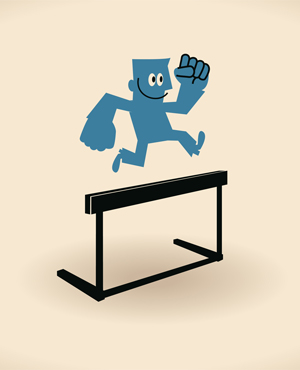 What is self-reliance? Well, the ability to rely on yourself. Self-reliant people have the advantage of always having themselves to turn to when life’s troubles hit or even when life’s highlights shake things up.
What is self-reliance? Well, the ability to rely on yourself. Self-reliant people have the advantage of always having themselves to turn to when life’s troubles hit or even when life’s highlights shake things up.
While relying on others can help us with coping, I used to rely on others for comfort, for decision-making, and for goal-setting?too much so. This lack of independence proved a mistake.
For instance, once I approached an animation school to produce an animated commercial for a non-profit organization. Heartily, I wrote and recorded the audio track for the commercial while overseeing the animators. Yet the animators threatened to sue me when anything went wrong, , and not just once?repetitively: a hidden cost of relying on others. The experience left me with a distaste for charity.
As another example, I approached the National Film Board to make a film, co-written by me, about one of my professors? research. The National Film Board gave the go-ahead, but I dropped the project due to lack of pay and misbehavior on one person’s part: an additional cost of relying on others.
Now, according to Gail Wagnild, author or True Resilience, increasing your self-reliance bolsters your ability to troubleshoot, to gain confidence, and to tough out the storms.
One way to increases your self-reliance is to learn basic skills such as cooking, home repairs, auto repairs, first-aid, and self-defence. If possible, learn the whole nine-yards of these basic skills.
I can personally tell you the value of learning self-defence. At one time in my life, a woman with a few rough edges loathed me. She approached me once and punched me. I cowered. Later, however, I spent years intensively practicing martial arts, weight-lifting, and cycling. When this woman appeared next, my body rippled with muscles, my heart rate beat optimally, and my self-defence skills peaked. She rushed toward me angrily. I went into my combative stance. And that was it: fight over before it had begun. I had learned self-reliance through self-defence. The moral of the story? Learn basic skills, such as self-defence, so that you, too, can tough it out.
Another way to increase your self-reliance involves taking responsibility for your actions. Gail Wagnild argues that when we give away our responsibility to others, we tend to blame them when things go wrong. By blaming others, we fail to learn from our own mistakes.
I too can tell you the value of taking responsibility for your own actions. I blamed my master’s thesis supervisor for my shortcomings in graduate school. She gave me bad advice although she had good intentions. When my first semester performance didn’t meet the PhD standard, I blamed her. Yet, when I later took on the challenge of mentally conditioning myself to succeed at the graduate level, I realized why I had faltered: my writing and my reading needed improvement. I had also spent a lot of time on extracurricular activities during graduate studies. Only after I examined my own errors could I begin fixing them. In other words, take responsibility for your life in order to learn and grow.
You can also increase your self-reliance by facing your fears. Gail Wagnild advises you to face the fear involved in pursuing your dreams: do you fear enrolling in a master’s program? Fear competing in athletics? Fear making a career change? Or do you fear moving to a new home? don’t let fear and a lack of faith stop you from achieving your goals. don’t let your need for security, your complacency, or your finances stop you in your tracks. Tough it out.
How did fear stifle my growth? Today, I long to enroll in a master of education program and work toward my PhD, yet I fear not having enough resources or time. Yet I maintain faith that my dream of acquiring a PhD will eventually come true, so I work a little toward my goal each day. Face your fears: take the initiative to achieve your goals, even if through small steps. Stepping toward your goal a little bit each day will quicken you to the doorsteps of your dreams.
One last way to increase your self-reliance involves faking it until you make it. Gail Wagnild suggests that you should take on the bodily posture of a confident person if you want to assert authority in a field. Put your hands on your hips, chin up, back straight. Project your voice. Even if You’re not confident, if you at least look confident, you fake it until you make it.
And yes, I have another personal story to tell?one about how I faked it until I made it, of course. I recently started working as a journalist for the media. I had never before published in print media. My only formal training in journalism was a brief online course that cost me ten dollars. I screamed amateur! Yet, my first story wound up as a magazine’s cover story. My second story wound up the most read for a print magazine’s Web edition. In sum, if you want to develop self-reliance to further your goals, fake it until you make it.
Now that you know the value of self-reliance, go ahead, put on your boxing gloves, strut your stuff, face your fears, and don’t blame anyone. But, before you enter the ring, at least learn the basics?the basics of how to tough it out.


